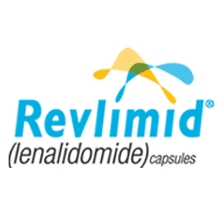Helpt u ons aan 500 donateurs?
23 augustus 2023: lees ook dit artikel: https://kanker-actueel.nl/immuuntherapie-met-gepersonaliseerde-dendritische-celtherapie-plus-onderhoudsdosis-lenalidomide-na-autologe-stamceltransplantatie-verbetert-bij-multiple-myeloma-complete-remissies-met-ruim-7-procent-na-1-jaar.html
3 oktober 2018: lees ook dit artikel:
15 februari 2018:
lees ook deze artikelen:
en dit artikel:
Klik hier voor artikel: Genentest blijkt voorspellende waarde te hebben bij het verloop van Multiple Myeloma - ziekte van Kahler bij nieuw gediagnosteerde patiënten en wel of niet aanslaan van Bortezomib - Velcade.
15 februari 2018: Bron: The Lancet ( met dank een arts-bioloog drs. Engelbert Valstar die me op deze studie wees)
Lenalidomide (REVLIMID) als onderhoudsbehandeling na een eenmalige autologe stamceltransplantatie bij multiple myeloma (ziekte van Kahler - botkanker) geeft jarenlange ziektevrije tijd (57 - 3 maanden versus 28 - 9 maanden) en mediaan een betere overall overleving (91 maanden) in vergelijking met een placebo.
En ondanks een toename van hematologische bijwerkingen en tweede primaire solide tumoren, zorgde lenalidomide-onderhoudstherapie na een autologe stamceltransplantatie (ASCT) voor een statistisch significante verbetering van de tijd tot progressie en zeggen de auterus kan deze aanpak als een standaard aanpak voor deze groep van patiënten voor de zorg worden beschouwd.

Uit het studierapport:
De meest voorkomende graad 3-4 bijwerkingen waren neutropenie bij 116 patiënten (50%) in de lenalidomide-groep en 41 patiënten (18%) in de placebogroep en trombocytopenie (bij 34 patiënten (15%) in de lenalidomide-groep en 12 patiënten (5%) in de placebogroep).
18 patiënten (8%) kregen een hematologisch recidief en 14 patiënten (6%) een tweede vorm van kanker met een solide tumor na de randomisatie en vóór ziekteprogressie optrad in de lenalidomidegroep, vergeleken met drie patiënten (1%) met hematologische recidief en negen patiënten (4%) met een andere solide tumor in de placebogroep. Drie hematologische en vijf patiënten met een andere solide tumor in de placebogroep bevonden zich in de cross-oversubgroep.
Het voleldige studierapport: Updated analysis of CALGB (Alliance) 100104 assessing lenalidomide versus placebo maintenance after single autologous stem-cell transplantation for multiple myeloma: a randomised, double-blind, phase 3 trial is tegen betaling in te zien.
Hier het abstract van de studie zoals gepubliceerd in the Lancet:
Despite an increase in haematological adverse events and second primary malignancies, lenalidomide maintenance therapy after ASCT significantly improved time to progression and could be considered a standard of care.
Updated analysis of CALGB (Alliance) 100104 assessing lenalidomide versus placebo maintenance after single autologous stem-cell transplantation for multiple myeloma: a randomised, double-blind, phase 3 trial.
Abstract
BACKGROUND:
In the CALGB (Alliance) 100104 study, lenalidomide versus placebo after autologous stem-cell transplantation (ASCT) was investigated for patients with newly diagnosed myeloma. That study showed improved time to progression and overall survival and an increase in second primary malignancies for lenalidomide at a median follow-up of 34 months. Here we report an updated intention-to-treat analysis of CALGB (Alliance) 100104 at a median follow-up of 91 months.
METHODS:
Patients were eligible for this randomised, double-blind, placebo-controlled, phase 3 trial if they had symptomatic disease requiring treatment; had received, at most, two induction regimens; and had achieved stable disease or better in the first 100 days after ASCT. We randomly assigned patients to either lenalidomide or placebo groups using permuted block randomisation, with a fixed block size of six. Randomisation was stratified by three factors: normal or elevated β2 microglobulin concentration at registration (≤2·5 mg/L vs >2·5 mg/L), previous use or non-use of thalidomide during induction therapy, and previous use or non-use of lenalidomide during induction therapy. The starting dose was two capsules (10 mg) per day, escalated to three capsules (15 mg) per day after 3 months. The primary endpoint was time to progression (time of progressive disease or death from any cause), with intention-to-treat analysis. This study is registered with ClinicalTrials.gov, identifier NCT00114101. New patients are no longer being recruited, but some patients remain on treatment and in follow-up.
FINDINGS:
Between April 14, 2005, and July 2, 2009, 460 patients were randomly assigned to receive either lenalidomide (n=231) or placebo (n=229). After three interim analyses, the study was unblinded at a median follow-up of 18 months, at which point 86 (67%) of 128 patients without progressive disease in the placebo group chose to cross over to the lenalidomide group. The median follow-up for the updated survival analysis, as of Oct 19, 2016, was 91 months (IQR 83·6-103·1). The median time to progression was 57·3 months (95% CI 44·2-73·3) for the lenalidomide group and 28·9 months (23·0-36·3) for the placebo group (hazard ratio 0·57, 95% CI 0·46-0·71; p<0·0001). The most common grade 3-4 adverse events were neutropenia (116 [50%] patients in the lenalidomide group and 41 [18%] patients in the placebo group) and thrombocytopenia (34 [15%] patients in the lenalidomide group and 12 [5%] patients in the placebo group). 18 (8%) haematological and 14 (6%) solid tumour second primary malignancies were diagnosed after randomisation and before disease progression in the lenalidomide group, compared with three (1%) haematological and nine (4%) solid tumour second primary malignancies in the placebo group. Three haematological and five solid tumour second primary malignancies in the placebo group were in the crossover subgroup.
INTERPRETATION:
Despite an increase in haematological adverse events and second primary malignancies, lenalidomide maintenance therapy after ASCT significantly improved time to progression and could be considered a standard of care.
FUNDING:
The National Cancer Institute.
Copyright © 2017 Elsevier Ltd. All rights reserved.
- PMID:
- 28826616
- PMCID:
- PMC5718627
- [Available on 2018-09-01]
- DOI:
- 10.1016/S2352-3026(17)30140-0
Gerelateerde artikelen
- Lenalidomide (Revlimid) plus lage dosis dexamethason langdurig gegeven geeft 28 procent betere resultaten in overall overleving en progressievrije tijd versus MPT (melphalan, prednisone en thalidomide) bij beginnende Multiple Myeloma (Kahler)
- Reguliere oncologie: Kahler - Multiple Myeloma - botkanker: een overzicht van recente ontwikkelingen binnen de reguliere oncologie bij elkaar gezet



Plaats een reactie ...
Reageer op "lenalidomide na autologe stamceltransplantatie bij multiple myeloma - ziekte van Kahler geeft superieure overall overleving en ziektevrije tijd"